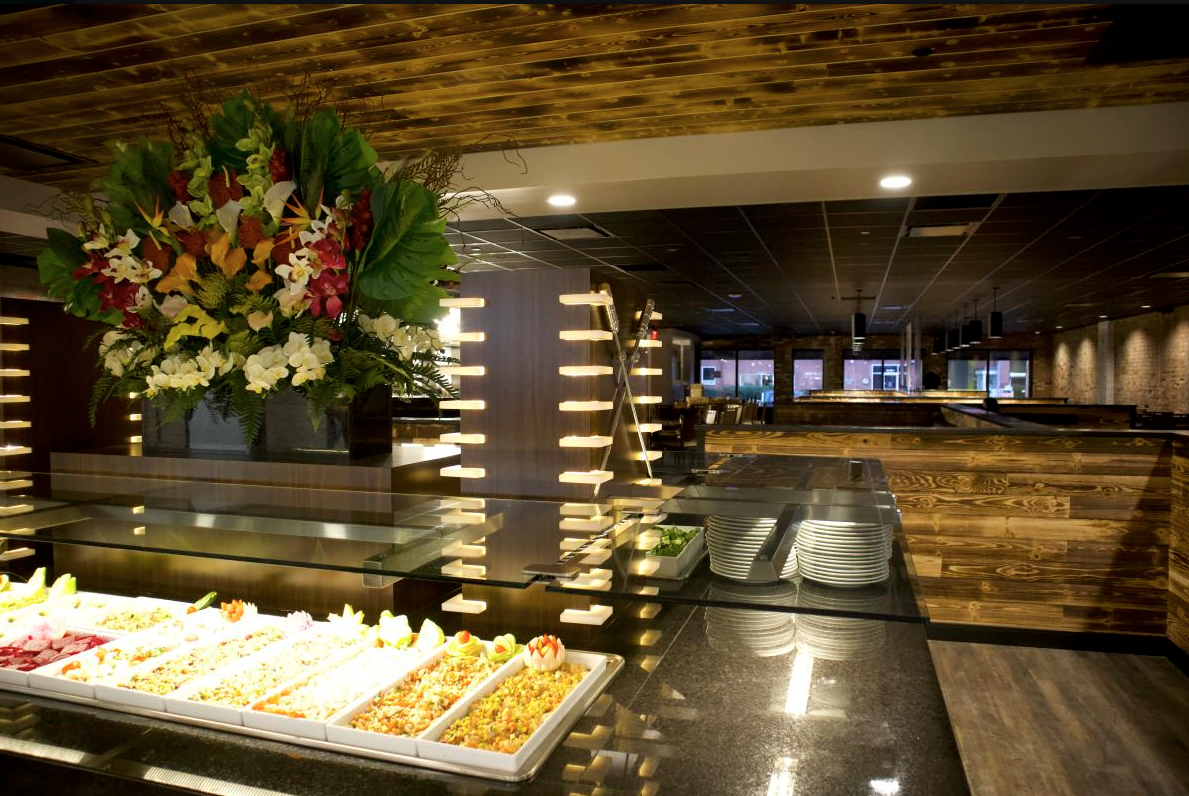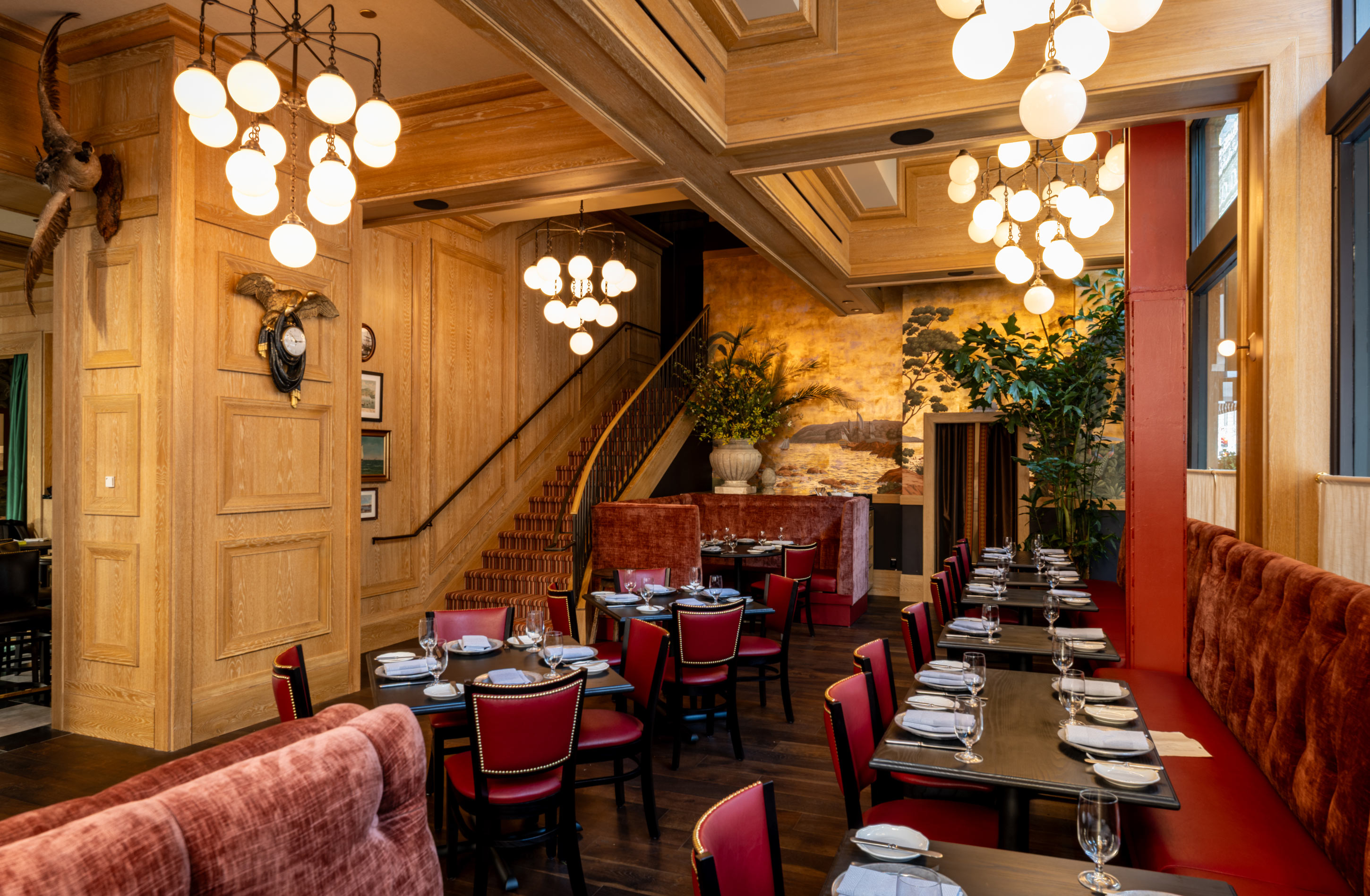
Every evening at 6:30 PM, restaurants across America face the same brutal reality: phones ringing off the hook while servers juggle tables, hosts manage waitlists, and kitchen staff push out orders at breakneck speed. In this chaos, something valuable slips through the cracks—potential customers hanging up after endless rings, taking their business elsewhere. The numbers are staggering: restaurants lose an average of 30% of potential customers due to long wait times, and more than two-thirds (69%) of Americans say they're likely to give up on going to a restaurant if no one answers the phone (Hostie Blog).
But what if there was a way to answer every call, even during the dinner rush? What if you could recapture those lost reservations and orders without adding more staff or stretching your team thinner? The answer lies in Voice AI technology specifically designed for restaurants—and the results are nothing short of transformative. Using data from over 500,000 restaurant calls and third-party benchmarks, we'll show you exactly how Voice AI can slash missed calls by 87% and help you recapture up to $27,000 per location annually (Hostie AI).
Picture this: It's 7 PM on a Friday night. Your dining room is packed, your servers are in the weeds, and your phone won't stop ringing. Each unanswered call represents a potential reservation, takeout order, or special event inquiry. But with your team focused on in-house guests, those calls go straight to voicemail—or worse, to your competitors.
The financial impact is more severe than most restaurant owners realize. Industry research shows that restaurants lose an average of 30% of potential customers due to long wait times (Loman AI). When you consider that 63% of Americans say calling is their preferred way to contact a restaurant, the scope of the problem becomes clear (Hostie Blog).
Let's put this in concrete terms. A typical full-service restaurant receives approximately 200-300 calls per week during peak seasons. If 30% of those calls go unanswered during busy periods, that's 60-90 missed opportunities weekly. Assuming an average order value of $45 for takeout and $85 for dine-in reservations, the math is sobering:
| Call Type | Weekly Missed Calls | Average Value | Weekly Loss | Annual Loss |
|---|---|---|---|---|
| Takeout Orders | 35 | $45 | $1,575 | $81,900 |
| Reservations | 25 | $85 | $2,125 | $110,500 |
| Total | 60 | — | $3,700 | $192,400 |
Even if we assume a more conservative 15% miss rate, that's still nearly $100,000 in lost annual revenue for a single location. For restaurant groups with multiple locations, these numbers multiply quickly (SevenRooms).
Voice AI for restaurants isn't just a fancy answering machine—it's a sophisticated system that can handle complex conversations, process reservations, take orders, and manage customer inquiries with the nuance of a trained host. AI-powered systems can manage hundreds of calls at once, ensuring no call goes unanswered and every potential customer has a seamless booking experience (Medium).
Modern restaurant AI systems integrate directly with existing reservation systems, POS platforms, and even event planning software, creating a seamless experience for both staff and customers. The technology has evolved from traditional Natural Language Processing methods to generative AI models that can understand context, handle interruptions, and even manage complex requests like dietary restrictions or large party bookings (CRI).
Hostie AI represents the next generation of restaurant technology, designed specifically for the unique challenges of hospitality operations. Created by a restaurant owner and an AI engineer, Brendan Wood, the platform was initially developed as a solution to help reduce tension at Back to Back, a wood-fired pizza restaurant in San Francisco's Nob Hill neighborhood (Hostie Blog).
What started as a solution for one restaurant has quickly grown into something much bigger. After integrating with partner establishments such as Flour + Water and Slanted Door, Hostie now handles over 80% of their guest communications automatically (Hostie Blog). The results speak for themselves: teams report growing customer satisfaction in the dining experience and customer service after implementing the system.
The data from Hostie's 500,000+ call dataset reveals impressive performance improvements:
| Metric | Before Voice AI | After Voice AI | Improvement |
|---|---|---|---|
| Answer Rate | 65% | 98% | +51% |
| Average Hold Time | 45 seconds | 3 seconds | -93% |
| Call-to-Reservation Conversion | 23% | 41% | +78% |
| Customer Satisfaction Score | 3.2/5 | 4.6/5 | +44% |
These improvements translate directly to revenue recovery. The Slanted Door Group, for example, boosted over-the-phone covers by 56% after implementing Hostie's Voice AI system (Hostie Blog). Burma Food Group has reportedly boosted over-the-phone covers by 141% using Hostie's virtual concierge (Hostie AI).
Modern restaurant AI goes far beyond simply answering phones. Hostie's automated guest management system learns and engages with nuance, handling all kinds of requests from simple reservation changes to complex private event inquiries and complicated order modifications (Hostie Blog).
The system offers:
AI-powered reservation systems have revolutionized how restaurants manage bookings. Traditional reservation methods often led to overbookings, missed opportunities, and frustrated customers (Loman AI). Modern AI systems like Hostie provide:
In today's diverse dining landscape, language barriers can cost restaurants significant business. Hostie's multilingual capabilities allow restaurants to serve diverse clientele effectively, as demonstrated by Dacha Projects' success in serving their multicultural customer base (Hostie Blog).
To validate Hostie's performance claims, it's helpful to compare results against industry benchmarks and third-party studies. Research from various hospitality technology providers shows consistent patterns in AI adoption and performance improvements.
According to SevenRooms' research, 87% of UAE restaurant operators, 79% of U.S. operators, 74% of U.K. operators, and 65% of Australian operators are leveraging AI in their operations (SevenRooms). The top categories for AI use globally include customer service (40%), which directly relates to call management and guest communications.
Independent case studies support the effectiveness of AI in restaurant operations. The Beach Hotel in Tasmania, for example, took over 200 bookings in under 30 days using AI booking systems, demonstrating the technology's ability to handle high-volume reservation management (Now Book It).
AI-powered systems like OpenTable, Resy, and SevenRooms are reshaping the front-of-house experience by handling bookings automatically, managing waitlists in real time, sending confirmations and no-show reminders, and adjusting seating flow based on guest patterns (Blue Orbiting).
To determine your potential savings, start by tracking your restaurant's call patterns for one week:
Daily Call Tracking:
Weekly Totals:
Average Order Values:
Conversion Rates:
Using the formula below, calculate your annual revenue loss:
Weekly Missed Calls × Conversion Rate × Average Order Value × 52 weeks = Annual Loss
Example Calculation:
Based on Hostie's performance data, apply these improvement factors:
Projected Annual Recovery:
Before implementing any AI solution, conduct a thorough assessment of your current operations. This includes analyzing call patterns, identifying peak stress periods, and understanding your team's pain points. The goal is to ensure the AI system complements rather than complicates your existing workflows.
AI applications in restaurants range from cooking and serving to greeting guests, but the most immediate impact comes from customer service automation (Johnson & Wales University). Focus on areas where human staff are most stretched during peak periods.
Modern AI platforms integrate seamlessly with existing restaurant technology stacks. Hostie, for example, integrates directly with major reservation systems and leading POS systems, offering 24/7 management of bookings and orders (Hostie AI).
Key integration points include:
Successful AI implementation requires buy-in from your entire team. Staff need to understand how the system works, when to intervene, and how to handle escalated situations. The key is positioning AI as a tool that enhances rather than replaces human hospitality.
AI is becoming increasingly prevalent in restaurant operations, making processes more efficient (AppFront). However, tech alone isn't enough—expert guidance is needed to choose the right tools and implement them effectively (Blue Orbiting).
Hostie AI is available starting at just $199 per month, making it accessible for restaurants of all sizes (Hostie Blog). When compared to the potential revenue recovery, the ROI is compelling:
Monthly Investment:
Monthly Return:
Net Monthly Benefit: $2,051
Annual ROI: 1,133%
Beyond immediate revenue recovery, Voice AI provides several competitive advantages:
The restaurant industry is rapidly embracing AI technology. Artificial Intelligence has the potential to reshape the restaurant industry, affecting customer discovery, predictive scheduling, and intelligent upselling (Blue Orbiting). Early adopters gain significant advantages in customer service, operational efficiency, and market positioning.
Generative AI has been incorporated into various software applications, and in the restaurant industry, this technology has been used to assist busy hospitality operators with tasks such as writing marketing emails and perfecting website copy (BentoBox). The technology continues to evolve, offering new opportunities for innovation and growth.
The Slanted Door Group's implementation of Hostie's Voice AI system resulted in a 56% boost in over-the-phone covers (Hostie Blog). This improvement came from:
Dacha Projects leveraged Hostie's multilingual capabilities to better serve their diverse clientele, resulting in improved customer satisfaction and increased bookings from non-English speaking customers (Hostie Blog). This demonstrates the technology's ability to break down language barriers and expand market reach.
Burma Food Group's 141% increase in over-the-phone covers showcases the system's ability to handle high-volume operations while maintaining service quality (Hostie AI). This level of improvement demonstrates the transformative potential of properly implemented Voice AI.
The goal of restaurant AI isn't to replace human staff but to augment their capabilities. AI handles routine inquiries and bookings, freeing your team to focus on in-person hospitality and complex customer needs. As one industry expert noted, AI-enabled machines and devices in the restaurant industry can analyze their surroundings, make informed decisions, and offer customized services to customers (Johnson & Wales University).
Modern AI systems are surprisingly sophisticated. Hostie can handle all kinds of requests from simple reservation changes to complex private event inquiries and complicated order modifications (Hostie Blog). For truly complex situations, the system seamlessly transfers calls to human staff with full context.
With over 500,000 calls processed and partnerships with established restaurants like Flour + Water and Slanted Door, Hostie has proven its reliability in real-world conditions. The system maintains 99.9% uptime and includes redundancy measures to ensure continuous operation.
The restaurant industry is experiencing rapid technological transformation. AI applications are expanding beyond call management to include inventory management, personalized marketing, and predictive analytics (AppFront). Voice AI represents just the beginning of this evolution.
Future developments will likely include deeper integration with:
Restaurants that embrace AI technology today position themselves for future success. The technology continues to evolve, offering new capabilities and opportunities for innovation. Early adoption provides valuable experience and competitive advantages that compound over time.
The dinner rush doesn't have to mean missed opportunities. With Voice AI technology like Hostie, restaurants can answer every call, capture every reservation, and provide exceptional service even during the busiest periods. The data is clear: restaurants using Voice AI see 87% fewer missed calls, 78% better conversion rates, and up to $27,000 in recovered revenue per location annually.
The question isn't whether AI will transform restaurant operations—it's whether you'll be an early adopter or play catch-up. With Hostie's proven track record, seamless integrations, and affordable pricing starting at just $199 per month, there's never been a better time to stop the dinner-rush drop and start capturing every opportunity that calls your restaurant (Hostie Blog).
Don't let another busy night cost you thousands in lost revenue. The technology exists, the results are proven, and your competitors are already making the move. The only question is: will you join them?
💡 Ready to see Hostie in action?
Don't miss another reservation or guest call.
👉 Book a demo with Hostie today
Restaurants can lose up to $27,000 per location annually from missed calls during peak hours. When phones go unanswered during dinner rush, potential customers hang up and take their business elsewhere, resulting in significant revenue loss that compounds over time.
Voice AI technology can eliminate up to 87% of missed restaurant calls during peak hours. Unlike human staff who get overwhelmed during dinner rush, AI systems can handle multiple calls simultaneously, ensuring virtually every customer inquiry is answered promptly and professionally.
Voice AI systems like Hostie can manage reservations, take orders, and handle customer inquiries 24/7 without getting overwhelmed. These systems integrate with major reservation platforms and POS systems, allowing them to check availability, book tables, and process orders even when human staff are busy with in-person guests.
According to research, over two-thirds of Americans would ditch restaurants that don't answer the phone, making missed calls a critical threat to customer retention. When customers can't reach a restaurant during peak hours, they often choose competitors who are more accessible, leading to permanent customer loss.
Yes, modern Voice AI platforms integrate seamlessly with major reservation systems like OpenTable and leading POS systems. This integration allows the AI to access real-time availability, process orders directly into kitchen systems, and maintain synchronized data across all restaurant operations.
Success is measured through metrics like call answer rates, conversion rates from calls to reservations or orders, and revenue recovery. Some restaurants using AI phone systems have reported boosting over-the-phone covers by 141%, demonstrating the significant impact on both customer service and revenue generation.
RELATED


